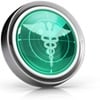 Health Law Scan
Health Law Scan
Our energy regulatory team published a blog post highlighting the US Nuclear Regulatory Commission’s (NRC’s) recently issued Report to Congress on Abnormal Occurrences for fiscal year 2020. The report documents key aspects of those events that the NRC considers “Abnormal Occurrences” (AOs) and allows the regulated community to review the operating experience of reactor, medical, and industrial users of radioactive materials.
Members of our labor and employment team have published resources highlighting updates to state mask guidance in California, Illinois, Massachusetts, New York, New Jersey, Oregon, and Washington in alignment with the Centers for Disease Control and Prevention’s (CDC’s) new guidance that allows fully vaccinated individuals to forgo masks and social distancing requirements in most indoor and outdoor locations.